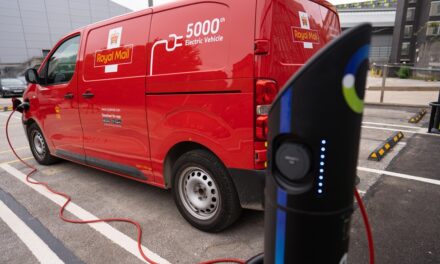
IPC: Carbon-neutral delivery is increasingly important to consumers

The IPC Global Postal Industry Report 2019 has revealed that e-commerce accounts for more than half of postal industry growth and China remains the primary market of origin for cross-border online shopping
In its fifth edition, the IPC Cross-Border E-commerce Shopper Survey has been further extended to now reach over 35,700 consumers in 41 different countries across North & South America, Asia Pacific and Europe, confirming itself as the largest-ever global consumer survey, focusing on cross-border e-commerce.
The countries included in the scope of the survey are: IPC member countries , plus Argentina, Brazil, Chile, China, Estonia, Indonesia, India, Japan, Latvia, Lithuania, Mexico, Poland, Russia, Slovenia, South Korea and Turkey.
Holger Winklbauer, CEO of IPC said: “Over the five editions of the Cross-Border E-commerce Shopper Survey we have continuously increased the geographical scope and sample. As 25 countries have participated in all five editions of the research, we have been able to report on five-year trends in this year’s report. We also explored consumers’ views on sustainability when shopping online cross-border. This has highlighted the importance to consumers in providing recyclable packaging and sustainable delivery. This aligns very well with the efforts the postal sector has been making in the field of sustainability and supports the new direction of our sustainability programme through alignment to the wider UN Sustainable Development Goals.”
Highlights
- 66% of consumers surveyed would like packaging of their cross-border online purchase to be recyclable, with 47% strongly agreeing and another 19% agreeing. They also expressed a strong preference to receive parcels in cardboard as opposed to plastic.
- 45% of cross-border online shoppers would like the delivery process to be carbon-neutral, of which 28% strongly agree, while 47% would be willing to receive their parcel a few days later to reduce the environmental impact.
- Participants in the survey were also asked if they had ever paid extra for sustainable packaging when purchasing online. Only 1% had done this before, while 44% said they had never paid extra for sustainable packaging, but were likely to do so in the future. 43% said that they were unlikely to ever pay extra for sustainable packaging.
IPC’s analysis of respondents’ answers shows that of the parcels bought cross-border in 2019, 39% were purchased from China, 14% from the US, 10% from the UK and 9% from Germany. Overall, the most popular e-retailers for cross-border purchases were Amazon (25%), Alibaba (20%), eBay (14%) and Wish (11%). The majority (86%) of cross-border parcels weighed up to 2kg and 44% of goods purchased cross-border cost less than €25.
When looking at the evolution of the main e-commerce exporting countries between 2016 and 2019, it is notable that after China’s sharp growth from 2016 to 2018, there is almost no change in 2019. China’s share increased by 7% in 2017 and by a slightly more moderate 3% in 2018 and stabilised in 2019. The other four largest countries have also stabilised over the past two years.
Respondents who had made a purchase from China in the past year were asked what they would do if online purchases from China increased by €10 per item. This new question was asked in anticipation of European Union changes to VAT and customs legislation for low-cost items coming from China, and also to reflect possible higher postal delivery costs for future Chinese purchases.
36% of these respondents said they would stop buying from China altogether, 41% would buy slightly less from China, and 13% would have no change to their purchase activity.
Based on the 41 markets surveyed, Amazon, Alibaba / AliExpress, eBay and Wish accounted for 70% of the most recent cross-border e-commerce items purchased. Amazon was most common in Luxembourg (69%), Austria (59%), Japan (52%) and Canada (49%) while Alibaba / AliExpress was most popular in Russia (74%), Turkey (64%) and Lithuania (55%). eBay was highest in Australia (45%), Cyprus (43%) and the UK (35%) while Wish was most common in Hungary (29%), Brazil (27%) and Sweden (25%).
The 2019 survey measured consumer satisfaction with six key elements: delivery cost, delivery location, tracking, delivery speed, customs and returns.
Of these six elements, Delivery speed clearly had the lowest level of consumer satisfaction. This was the case in almost all 41 surveyed markets. The most common delivery speed for cross-border purchases was 15-29 days (20%), with 11% of respondents having to wait 30 days or more for their purchase to arrive. This could be explained by the high percentage of light-weight, low-value purchases coming from China.










